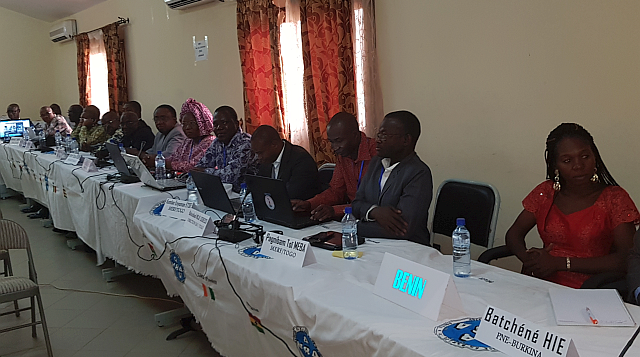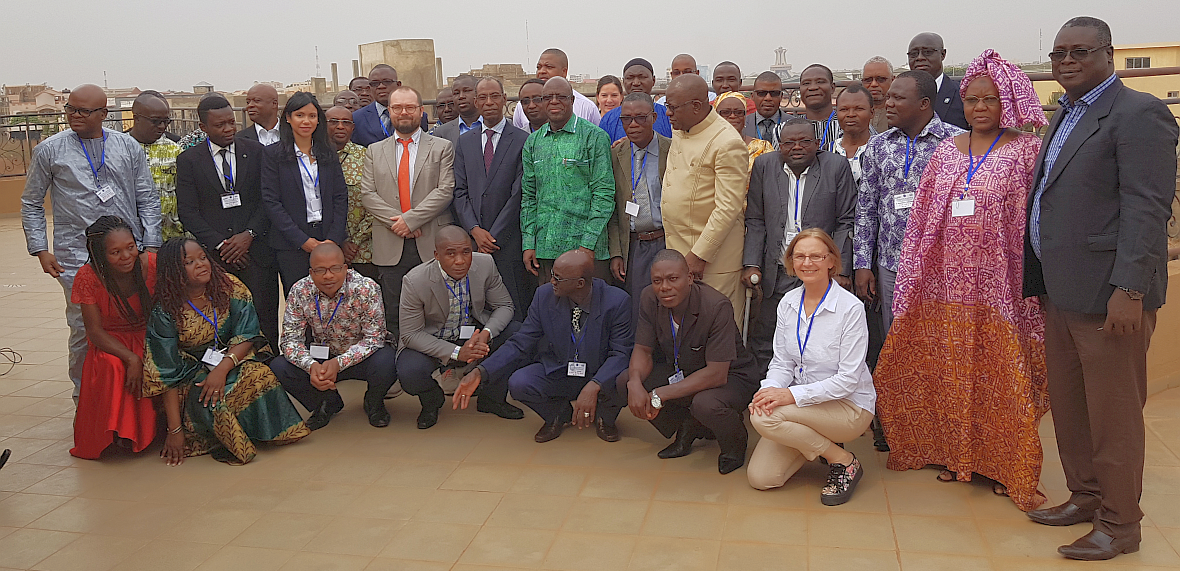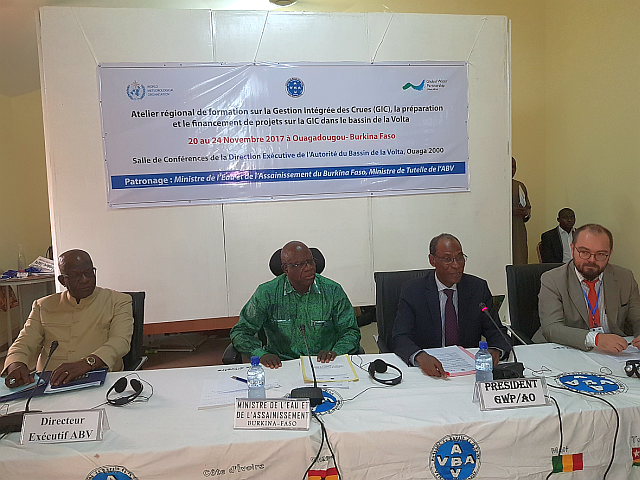 This workshop is the logical continuation of a process whose first phase focused on analyzing the needs for IFM capacity building at the basin level and in each of the six riparian countries (Benin, Burkina Faso, Ivory Coast, Ghana, Mali and Togo) finalized in 2016. The initiative is a response of the VBA as well as the Governments and Country Water Partnerships (CWPs) of the six countries to the recurrent problem of floods with their heavy losses and damages for the basin and states. It is linked to the implementation of the Volta Basin Strategic Action Programme (SAP) and is supported by the WMO/GWP Associated Programme on Flood Management (APFM) through the Water, Climate and Development (WACDEP) Programme.
This workshop is the logical continuation of a process whose first phase focused on analyzing the needs for IFM capacity building at the basin level and in each of the six riparian countries (Benin, Burkina Faso, Ivory Coast, Ghana, Mali and Togo) finalized in 2016. The initiative is a response of the VBA as well as the Governments and Country Water Partnerships (CWPs) of the six countries to the recurrent problem of floods with their heavy losses and damages for the basin and states. It is linked to the implementation of the Volta Basin Strategic Action Programme (SAP) and is supported by the WMO/GWP Associated Programme on Flood Management (APFM) through the Water, Climate and Development (WACDEP) Programme.
 Indeed, the West Africa region has been subject to heavy flooding in recent years. In 2009, floods in the region generated at least 152 million USD of damages across 12 countries. In 2010 more than 2.2 million people were affected by flood events. The most severe event came, however, in 2012 when more than 10 million people were affected by flooding. In Nigeria alone 2.3 million people were displaced. As the trends show, the vulnerability of the region is increasing due to population growth, urbanization, and climate change.
Indeed, the West Africa region has been subject to heavy flooding in recent years. In 2009, floods in the region generated at least 152 million USD of damages across 12 countries. In 2010 more than 2.2 million people were affected by flood events. The most severe event came, however, in 2012 when more than 10 million people were affected by flooding. In Nigeria alone 2.3 million people were displaced. As the trends show, the vulnerability of the region is increasing due to population growth, urbanization, and climate change.
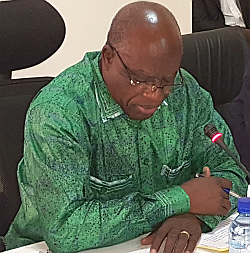 The workshop was presided by the Minister of Water and Sanitation of Burkina Faso, Mr. Ambroise OUEDRAOGO who said that “this is a very important and crucial training for our countries. I hope that you will be able to understand the mechanisms and help your/our countries access these funds that have very complicated mechanisms.” Speaking on the basis of his technical experience in addition to his decision-making position in the Government he pointed out the discussions during the COP21 in Paris up to the last one in Bonn to show the challenges the countries and mostly developing ones are facing. So he said that he was very thankful to GWP, WMO and VBA to have worked jointly to make this workshop and other related activities possible for the benefit of the countries.
The workshop was presided by the Minister of Water and Sanitation of Burkina Faso, Mr. Ambroise OUEDRAOGO who said that “this is a very important and crucial training for our countries. I hope that you will be able to understand the mechanisms and help your/our countries access these funds that have very complicated mechanisms.” Speaking on the basis of his technical experience in addition to his decision-making position in the Government he pointed out the discussions during the COP21 in Paris up to the last one in Bonn to show the challenges the countries and mostly developing ones are facing. So he said that he was very thankful to GWP, WMO and VBA to have worked jointly to make this workshop and other related activities possible for the benefit of the countries.
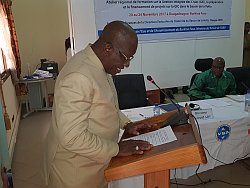 The Volta Basin Authority Executive Director, Mr. Robert DESSOUASSI highlighted how important this training was for his institution that is trying to build its institutional as well as its technical capacities. He called VBA countries to better equip themselves for data collection to build reliable early warning systems in the basin.
The Volta Basin Authority Executive Director, Mr. Robert DESSOUASSI highlighted how important this training was for his institution that is trying to build its institutional as well as its technical capacities. He called VBA countries to better equip themselves for data collection to build reliable early warning systems in the basin.
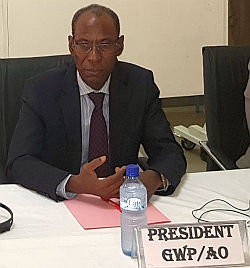 Professor Amadou Hama MAIGA stated that “in IWRM, forecasting and flood management are undoubtedly an issue, at the heart of the socio-economic and political stakes of our sub-region that is subject to extreme rainfall events due to climate change. It is about ensuring the survival of people, preserving the prosperity of their economic activities and ensuring social stability. This major concern requires the development and implementation of well-thought-out and sustainable solutions to prevent disasters such as floods, which cause significant material and economic damage to human lives every year.”
Professor Amadou Hama MAIGA stated that “in IWRM, forecasting and flood management are undoubtedly an issue, at the heart of the socio-economic and political stakes of our sub-region that is subject to extreme rainfall events due to climate change. It is about ensuring the survival of people, preserving the prosperity of their economic activities and ensuring social stability. This major concern requires the development and implementation of well-thought-out and sustainable solutions to prevent disasters such as floods, which cause significant material and economic damage to human lives every year.”
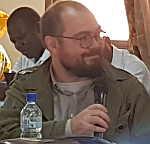 The representative of the World Meteorological Organization (WMO), Giacomo TERRUGI, added that “an effective way to adapt to climate change is to invest in national meteorological and hydrological services and the development of early warning systems. Studies conducted by the United Nations Office for Disaster Risk Reduction (UNISDR) have shown that every dollar invested in preparedness saves up to $7 in reconstruction costs.”
The representative of the World Meteorological Organization (WMO), Giacomo TERRUGI, added that “an effective way to adapt to climate change is to invest in national meteorological and hydrological services and the development of early warning systems. Studies conducted by the United Nations Office for Disaster Risk Reduction (UNISDR) have shown that every dollar invested in preparedness saves up to $7 in reconstruction costs.”
The Ouagadougou meeting, which brought together 36 participants, including 5 women, after 5 days, allowed participants to learn about the concepts, approaches, methods and tools of integrated flood management and project preparation and financing.
The third stage will focus on the formulation of IFM projects that could be financed by climate financing mechanisms (Adaptation Fund, Green Climate Fund, Global Environment Facility, etc.) and on water.
